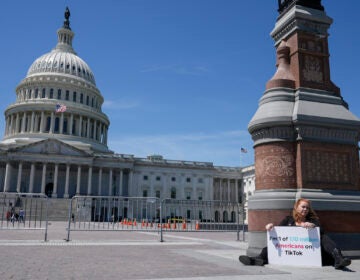N.J. lawmakers consider erasing pot convictions — if state legalizes recreational marijuana
Assemblywoman Annette Quijano says a marijuana charge has a detrimental effect when trying to access higher education, employment, and housing support.

File photo: New Jersey State Capitol building in Trenton. (Alan Tu/WHYY)
New Jersey lawmakers are considering a bill that would expunge the criminal records of those with low-level marijuana offenses if the state legalizes or decriminalizes recreational marijuana use.
Assemblywoman Annette Quijano said a marijuana charge has a detrimental effect when trying to access higher education, employment, and housing support.
“If we are to allow for legal possession and use of marijuana — as many other states have done — then we have to ask ourselves if it’s morally just to allow those individuals to continue to carry the scarlet letter,” she said. “And is it in our best interests as a state?”
Jon-Henry Barr, the past president of the New Jersey State Municipal Prosecutors Association, supports an expedited expungement process.
“It simply serves no salutary purpose, in my opinion as an experienced municipal prosecutor, to maintain someone with a criminal record for having possession of a joint or even several times of getting caught with possession of a joint of marijuana,” Barr said. “It simply doesn’t do anything to advance our interests as New Jerseyans or as society in general.”
Expunging a record can be costly, according to Amol Sinha, the executive director of the ACLU of New Jersey.
“It could cost an individual thousands of dollars for legal help,” he said. “It could cost over $200 just in fees. It could take months, up to a year, if not longer to go through this process.”
Projected state revenue from legal marijuana sales could help fund the change, said Kate Bell with the Marijuana Policy Project said.
“If New Jersey is going to be bringing in $300 million a year, there is no reason that some of that tax revenue can’t go towards hiring temporary employees for the courts to go through these cases,” she said.
But it could be difficult to track down the records of some old drug offenses for expunging, said Steve Somojyi, who oversees municipal courts for the state judiciary.
“Going back prior to our computer systems, that’s where it gets literally almost impossible,” he said. “In order to identify those cases, I don’t have a computer system. That’s a manual process.”—
Judiciary officials say there have been about 400,000 drug convictions in the state since 2008.
WHYY is your source for fact-based, in-depth journalism and information. As a nonprofit organization, we rely on financial support from readers like you. Please give today.




